|
An Interview with 'Ian Gillan'
The Frontman of 'Deep Purple' and also a successful solo artist that took place on 27th March, 2009 via Telephone. Interviewed by Glenn Milligan. Ian: Hello. Glenn: Hi is that Ian? Ian: Yep. Glenn: It’s Glenn from Metalliville.com, how you doing? Ian: Glenn, How are ya? Glenn: Oh pretty good mate. Ian: Good. I’m in Portugal just smelling the jasmine. Glenn: Oh nice one. Ian: Supping a Vodka and Tonic. Glenn: I can’t fault ya, yeah. (Ian laughs). Where did the idea for the design of the album cover come from? Ian: (laughs) It came from the Germans (we laugh). The record label.
Glenn: Right. Ian: I had a really nice picture but they didn’t like it. Glenn: It sorta looks like whiteness and sand in the corner. I always thought there was some sort of cosmic idea behind it or something. Ian: I think there might have been but they never quite got through to me. Glenn: (laughing) Yeah. Why did you decide to title the album ‘One Eye To Morocco’? Ian: Well the title track had already been chosen for that. I didn’t actually have a title for it, ‘One Eye To Morocco’ and it was a bit of inspiration just as I was finishing off in the studio. I didn’t have a title for the album either and I remembered a situation in Poland some years ago. I was on a winter holiday there with a friend of mine. He came to meet me in Krakow and we did the usual tourist thing and I in Shindlers Cafe and he was explaining about Oscar Schindler and this amazingly, wow, she was beautiful, she just walked behind him and I lost it completely. I just sort of followed her with my eyes as she walked across to the door – this incredible looking woman. Glenn: Yeah. Ian: And Tommy said to me, “Ahh Ian, you’ve got ‘One Eye to Morocco’”. Well obviously it means a wandering eye but in Polish, the full saying is ‘One Eye to Morocco and the other to the Caucasus’ which has obviously got political roots but literally it means being crossed-eyed, looking in two directions at the same time.
Glenn: Yeah, got ya. Ian: But more philosophically, I suppose it would mean if you’re sitting at work and dreaming about the game or a date or a holiday or something like that, and I though it was a perfect musical metaphor whereas Deep Purple could be the Caucasus and Morocco could be my naughty weekend away. Glenn: (I laugh). Good answer. What are your highlights for recording the album? Ian: To be honest the rehearsals. The guys and I had done a week of rehearsal – the session guys that I know in Buffalo, New York and they are all, well most of ‘em, good friends of mine and when I walked into the rehearsal room it was just the joy to hear stuff being done in such a different way. It wasn’t a rock band. The idea was to support the music in the sense that that kind of stuff, that influenced me during my formative years. You know, the Rock ‘N’ Roll and the Blues, Rhythm ‘N’ Blues, Soul, Tamla, Reggae – that sorta thing. They didn’t have guitar solos and they didn’t have rock bands. So I decided I’d like to record in a kind of traditional way. So there werent any improvised guitar solos. Everything was written and when I realised how it all blended together - I was just going through the rehearsals – that was the best time I think and I knew it was gonna work out fine then. Glenn: Right. That’s good. What would you say your favourite songs are on the album and why and what are you most proud of? Ian: Well this kinda changes everyday, depending on what kind of mood I’m in but at the moment I’m kinda enjoying ‘No Lotion For That’. I sang it live on a Belgian TV show last week and it was supremely enjoyable. It’s pure Chuck Berry and it’s my roots you know? Glenn: Yeah. Ian: But the one I’m most proud of I think, is the one that is the oldest song on the album – it must be over 10 years old. It’s called ‘Change My Ways’ and it’s the only time I’ve ever really presented to Deep Purple and we were recording an album – possibly ‘Purpendicular’ but possibly ‘Abandon’ I’m not sure. We were down in Florida anyway and I gingerly picked up my acoustic guitar and said, “Hey Guys, what do you think of this?”. (Laughs) So I started strumming through and singing and did the chorus into the 2nd verse. Steve Morse got up and put his guitar down on his chair and kind of whimsically smiled at me and he said, “So Ian”, he said, “What you’re saying is you want Deep Purple to record this song that has only one chord. (We laugh) And the rest of them kinda grinned and sniggered and went out to make coffee and stuff like that and mumbled something about, well revelled that it was, “Bolero, so what’s his problem”. (We laugh). Anyway, the song endured and it was always a challenge and I got the feeling they didn’t understand the lyrical part of it which was all about contradictions. I mean it started off the end of the cold war and the beginning of global warming and that sort of thing and other contradictions about getting older and trying to adjust my position. So it was really quite a challenge to create texture and dynamics with a song that does only have one chord. So we used other devices like vocal breaks and little instrumental grooves and stuff like that. At the end of course taking a leaf out of Ravel’s book, I did have a multi key-change in the final couple of bars.
Glenn: Right. Sounds good. You mentioned ‘No Lotion For That’ – what influenced that song if you don’t mind me asking? Ian: Well these things just happen honestly. If a song doesn’t take shape... the guy I write mostly with Steve Morris comes down from Liverpool every now and again and you know, “What do you think of this?”, and we chuck some ideas around and I think if the song isn’t in shape by about 20 minutes, we normally dump it because it’s gonna be a contrivance after that. So how it came about was... I mean Steve’s, I mean he does the whole Rock thing, you know with the... I mean he brings the drum machines and god knows what so his demos, his ideas that he works out, I mean it sounds like a full-on rock band. So I’ve got to pick the bones outta that. That was just so easy. He just writes little ideas that he knows I’m gonna take to straight away. So yeah, that was just it – pure Chuck Berry and er... what I do when I’m writing is I sing jibberish – what I call jibberish. It’s just complete nonsense. It’s actually words and phrases and tunes just to try and get a spontaneous template for something that I can work on to complete the songs. Very often a phrase will come out during that process and one of them, ‘No Lotion For That’ which I thought was amusing. Glenn: As soon as you hear it you think it’s about the clap or something. Ian: Oh right yeah (laughing). It’s actually a female. (We laugh). An incurable female. Glenn: Will you be touring the album itself when you’ve off dates from the (Deep) Purple dates? Ian: Not at the moment but strangely enough that’s come up in conversation quite a bit so there is some kind of loose talk about it and maybe later in the year I can put something together. I’m not sure at the moment as more dates are coming in for (Deep) Purple – we’re jammed. The diary’s looking amazing until next March. Glenn: Wow. Ian: We played 48 countries last year and it looks like it’s gonna be pretty much the same this year. Glenn: What are the highlights of the countries? What’s stood out most to you for gigs and the countries themselves? Ian: Well, I think you go... the culture changes are not so dramatic as they used to be 30 or 40 years ago. It’s much more of a... people get affected by communications and Internet and TV. They watch sort of American & British TV and all that sort of thing. But I still think that going out to.. oh I don’t know... so many things in the past... the first time you go somewhere is always very special – Lake Baikal on the north of Mongolia in a country called Irkukst in Siberia was pretty amazing. Normally you don’t get much chance to see because you’re in 1 day, do the show and you’re off somewhere else the next day but we had a couple of days off there and we went out in this lake which is the deepest lake in the world... Glenn: Wow! Ian: ...and unique species of fish which they caught and barbecued on the deck. (I laugh). That was pretty cool because everyone was like out of themselves on vodka by the end of the time including the captain of the ship. Glenn: Wow! Ian: It’s pretty amazing, I love travelling and (the) thing is we’ve been to all these countries before but when you’re going back to places now it’s not the sites you see, it’s meeting up with old friends.
Glenn: Yeah, I’m the same when I go over to Florida and that. Talking of Florida, I suppose, brings me onto a guy from Florida, Yngwie Malmsteen and he was mentioning that you’ve got the Deep Purple/Yngwie Malmsteen Japanese dates coming up. What are you most looking forward to about touring with Yngwie? Ian: (Laughs) Well to see if he still maintains his expertise in pick throwing. Glenn: (I laugh) He has. Every ten seconds or so he’s chucking one out. Ian: Unbelievable. Glenn: He is, isn’t he? Ian: I was doing a show, I was touring, Steve Morse was there, maybe 10 or 15 years ago, something like that and he turned up. His Roadie said, “Oh can Yngwie come and jam”. It was in his hometown you know? Glenn: Yeah. Ian: In Sweden. Glenn: Yeah. Ian: I arrived at the gig and there he is, lying on my couch, he’s drunk all my vodka (I laugh), he’s got about 3 stacks on stage and it was only a little gig and I thought,’What are you on about?’, and then the whole band... he came on and started jamming. I mean he was oblivious to the rest of us, so everyone left the stage and left him to it, (I laugh), and then he sort of looked around and ran out of steam and so we all came back. But we were watching and the next few days on the tour bus was unbelievable because everytime anyone said anything they’d flick a pick. (We laugh). I just wanna see if he still has this skill. Glenn: Yeah, I mean I saw him in Sheffield and it’s like he keeps his guitar tech so busy. It’s like every few seconds, he’s like sticking some more plectrums on... Ian: I don’t know why he doesn’t just get a seaside bucket and a shovel sling ‘em out. (Laughs) Glenn: It’s incredible. Ian: Yeah. Glenn: What songs do you find are harder to sing these day, like ‘Oh god, I don’t fancy singing that one tonight’? Ian: Oh well, that’s a good question. Actually, if you’ve got a bit of a throat or a cold or something like that then ‘Woman From Tokyo’ is the hardest song I’ve ever had to sing with (Deep) Purple. It’s just a... you know, you wanna be right on it and it is a challenging song whereas the out and out rockers are actually a lot easier because you just go for it – go hell for leather but you need a lot of discipline and technique in that one. There are one or 2 others. Also ‘Knocking At Your Back Door’, that’s only because there’s a long sustainable note and if you’re not on top form it’s a bit of a strain but that’s only if I’ve got a cold or something. But I’d say they are the two most difficult yeah.
Glenn: Here’s a controversial question for you. What are your thoughts of the albums that seem to come out now and again? Ian: Well they’re not approved obviously but to be honest we had a chat about this and decided to not do anything about it. I mean, I’ve mentioned it on my website a couple of times but you know what, it’s a shame really. I’ve just said they’re not approved but I mean, but I think really if you start going to war, for such a small amount of records sold, you know? Glenn: Yeah. Ian: And to actually get into a conflict about it is probably exactly what they want to raise the profile etc. So I tended to kind of ignore it really. Glenn: I mean you are gonna spend more money on the case that what’s gonna be sold anyway. Ian: Yeah exactly. I’ve got great memories of that (Gillan) period. I mean, fantastic times and I’m still to this day one of my favourite moments on recorded in my recorded career is the second part of ‘Double Trouble’ where the crowd is singing ‘No Laughing In Heaven’ at Reading Festival. I mean that is just fantastic. So yeah, I got great memories of that and it’s a shame really that a lot of this sub-standard material gets out and it’s really rubbish really. All I can do is say it’s not approved. Glenn: When you did the ‘Live In Anaheim’ (CD & DVD), what made you decide to choose that one or what that chosen by the record company? Ian: It was just because it was in LA, it’s just up the road from LA and er.. well yeah. All the crew from the record company, they knew people in LA. Anyway, it’s up the road from LA and they’d been out to our shows and they’d enjoyed it so much nad they said, “Oh let’s record it and we’ll get some cameras down”. So it was convenient to. We did a soundcheck at House Of Blues the night before and then they came up and filmed Anaheim. It was just cos it was convenient really. Glenn: Didn’t you have the girls walking on with placards and that? (Ian laughs). Where did all that come from? Ian: Oh I was bored (I laugh) and I thought at the beginning of the tour, I thought. ‘Let’s get some crumpet up on stage, (I laugh), just to.. not to make it tacky or anything like that but let’s make sure that they’re hardly wearing anything’, and I took this inspiration from, you know in the boxing matches where the girls get up and they hold the card up ‘Round 2’, ‘Round 3’ – well I thought there was nothing wrong in them because we were having so much fun we were getting the set list muddled up (I laugh), and so I though I’d install some discipline and have the girls walking out occasionally with the title of the next song on. Glenn: Yeah it was fun to watch because when I was watching it I was thinking, ‘When’s the girls gonna come back on again?’. (We laugh). It takes it away from watching the band or something. Ian: Yeah, for a second or two, it’s not a bad thing.
Glenn: I’m messing with you mate, yeah. You recorded 38 songs altogether (for the album), what’s happening with the rest of the songs? Ian: Well they’re back in the library really. I mean, that was quite hard making a selection but I had find a way of getting a criteria and once I’d chosen, ‘One Eye To Morocco’ - the song, the rest fitted in quite easy. What’s gonna happen to them, I haven’t got a clue. I do a lot of songwriting, in fact I’ve written another 10 since then and so we’re back up to 38 again and I write ‘em for fun and I’ve no idea when they will be used and if they will ever be used, I don’t know. Glenn: I suppose they can just be bonus tracks and whatever in time. Ian: Mm. Mm. Glenn: What’s your views on the music business today to what it was when you first started and gone through various decades? Ian: Well it’s still a simbiotic relationship. I mean the music and the business are 2.. Glenn: Different things. Ian: They are strange bed(pals) really but since the recording business started and since entrepeneurs took an interest in performance there’s always been that relationship. I think technically it’s gone through some great tumolt really. I mean I remember my 1st recording contract with Pye in ’65 was.. there was 6 in the band and a Manager to support was for ¾ of 1% - that was the royalty. I’m thinking that a lot of young artists today are probably, no matter what their contracts say are not gonna see a lot of money out of their short careers. Glenn: Yeah. Ian: So there’s money to be made – that’s for sure and I know that the musicians need the business to exploit their music. If they, unless they have a totally outeristic approach, I mean in which case you are just gonna be playing to your home crowd for the rest of your life. So if you wanna travel and if you want to get to a bigger audience, you need the entrepeneurs. So it’s changed really in technical terms because of communications, because of television and because of the different way in which people... people tend to listen to music with their eyes a lot more than they used to (laughs), they used to use their ears mostly and so I think that’s the biggest changes regarding image. But the realationship – the music business as such hasn’t changed that much, I don’t think.
Glenn: What’s your preference regarding vinyl and cd? Ian: Well CD got a bad rap because it was crap in the early days and the reason for that is because people didn’t understand how to use technology. They didn’t understand how to record it or they decided to forget how to record it, more to the point and embrace new technology. Secondly the old stuff that was released – and this was the biggest problem, was when vinyl was remastered. I used the word – it wasn’t remastered it was just copied and put onto digital and that’s why when I first head ‘Machine Head’, Oh I burst into tears – it was so horrendously awful – flat and nothing had been done to it so all that remastering work 10 years ago has really paid off because it’s actually beginning to sound good now. But vinyl had its own disciplines, I mean the optimum length of an album was 38 minutes – 19 minutes a side. The packaging was much more attractive. The great thing is of course, there was a lot less of it. A lot less music, a lot less artist and you know, people would.. I mean it was quite exciting when people would go and buy a single every week on a Saturday morning or something like that but I think the availability is leaning us more back towards.. the quality of downloading music is apt. (and we draw the Interview slot to a close) Glenn: Right thanks for your time it’s been great. Ian: Cheers. Nice talking to you brother. Glenn: You take care and have a good one with Yngwie when it all happens. Ian: Thank You. Glenn: You take care. Ian: Cheers, bye. Glenn: Bye.
A big Thank you to Peter Noble @ Noble PR, Anne Zwirnlein @ Edel Records and of course Ian Gillan himself for an Excellent Interview |

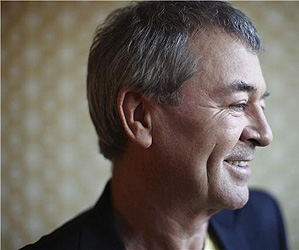
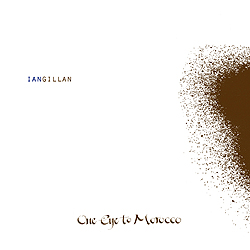
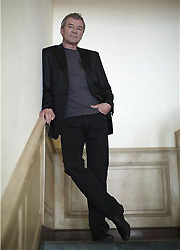
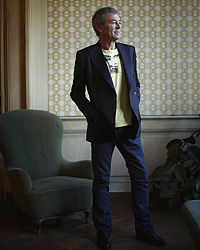
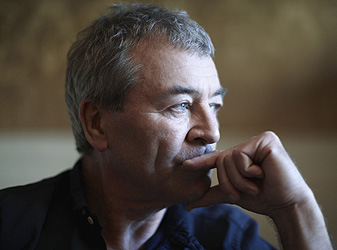

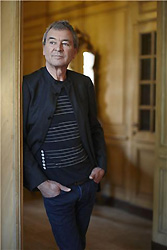
%20Tommaso%20Mei%20use.jpg)